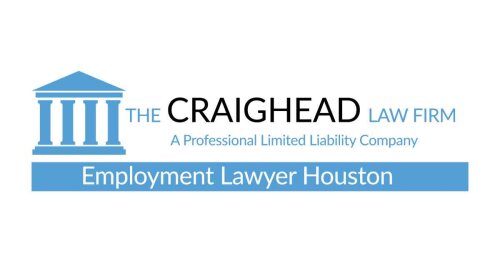Best Whistleblower & Qui Tam Lawyers in Missouri
Share your needs with us, get contacted by law firms.
Free. Takes 2 min.
Or refine your search by selecting a city:
List of the best lawyers in Missouri, United States
About Whistleblower & Qui Tam Law in Missouri, United States
Whistleblower and Qui Tam laws are crucial tools to fight fraud and corruption, especially within government programs and public funds. In Missouri, as in the rest of the United States, these laws are designed to protect individuals who report illegal activities or misconduct in their workplaces or communities. Qui Tam actions, in particular, allow private citizens to file lawsuits on behalf of the government against entities or individuals that have defrauded governmental programs. Successful whistleblowers or Qui Tam relators may be entitled to a share of any recovered funds as a form of reward and recognition for their efforts in exposing wrongdoing.
Why You May Need a Lawyer
Legal issues surrounding whistleblowing and Qui Tam cases are often complex and can involve both state and federal laws. You might need an attorney if:
- You suspect your employer or another party is engaging in illegal activities like defrauding government programs, violating state or federal laws, or engaging in unsafe practices.
- You are considering exposing wrongdoing but are concerned about retaliation, such as harassment, demotion, or termination.
- You have already experienced negative consequences for reporting illegal activities and need to know your rights and available remedies.
- You want to file a Qui Tam lawsuit on behalf of the government and need guidance on the process and potential outcomes.
- You need to understand whether your situation qualifies for protection under the Missouri or federal whistleblower statutes.
- You require assistance negotiating settlements or navigating mediation related to whistleblower claims.
Local Laws Overview
Missouri has specific laws protecting whistleblowers, alongside federal statutes such as the False Claims Act. Missouri’s Whistleblower Protection Act shields employees from retaliation when they report illegal acts or refuse to participate in actions that violate the law. The Missouri Fraud Against Taxpayers Act (MFATA) closely mirrors the federal False Claims Act, allowing private citizens to bring Qui Tam actions on the state’s behalf regarding misuse of state funds or property.
Key aspects of Missouri’s whistleblower and Qui Tam laws include:
- Protection for employees who report violations of state law, regulations, or public policy to authorities or supervisors.
- Remedies for whistleblowers who face adverse employment actions including possible reinstatement, back pay, and compensatory damages.
- Eligibility for rewards under Qui Tam actions, typically between 15 and 30 percent of the recovered amount if the case is successful.
- Strict filing requirements, confidentiality concerns, and statute of limitations for initiating claims.
Frequently Asked Questions
What is the difference between a whistleblower claim and a Qui Tam action?
A whistleblower claim typically involves reporting wrongdoing or illegal acts within an organization, often to authorities or regulators. A Qui Tam action is a specific type of lawsuit under the False Claims Act or Missouri Fraud Against Taxpayers Act where a private individual files on behalf of the government against those defrauding public funds.
Am I protected if I blow the whistle in Missouri?
Yes, Missouri law protects employees from retaliation if they report illegal conduct or refuse to participate in it, as long as the reporting is made in good faith and follows proper channels.
Can I file a Qui Tam case in Missouri for state government fraud?
Yes, the Missouri Fraud Against Taxpayers Act allows private individuals to file Qui Tam lawsuits for fraud involving state funds, contracts, or property.
What compensation can whistleblowers receive in successful Qui Tam cases?
If the government recovers funds as a result of your Qui Tam action, you may be entitled to a percentage (usually between 15 and 30 percent) of the recovery, depending on your involvement and whether the government intervenes in your case.
What types of wrongdoing are covered by Missouri whistleblower protections?
Protections cover the reporting of violations such as illegal activity, fraud, gross mismanagement, waste of public funds, dangers to public health or safety, and other acts that violate state or federal laws.
What should I do if I face retaliation after reporting misconduct?
If you experience retaliation, document all incidents and communications, and contact a local labor attorney or a lawyer who specializes in whistleblower protection immediately to discuss your rights and potential legal remedies.
Is my identity kept confidential if I file a Qui Tam complaint?
Qui Tam actions are filed under seal, meaning your identity is initially kept confidential from the defendant and the public. However, your name may be revealed at later stages of the legal process.
Are there deadlines for filing whistleblower or Qui Tam claims in Missouri?
Yes, both state and federal laws impose strict time limits for filing these claims. Timely legal advice is crucial to preserve your rights.
Can state employees act as whistleblowers or file Qui Tam lawsuits?
Yes, but there are some limitations and exceptions. Consultation with a knowledgeable attorney is advised to determine eligibility in specific circumstances.
Do I need an attorney to file a whistleblower or Qui Tam case?
While not required by law for all whistleblower claims, legal representation is highly recommended due to the complexity of these cases and the risks involved, especially for Qui Tam lawsuits.
Additional Resources
If you are considering whistleblowing or a Qui Tam action in Missouri, the following resources may be helpful:
- Missouri Attorney General’s Office: Receives reports of fraud involving state funds and provides information on state-level protections and procedures.
- United States Department of Justice: Handles federal False Claims Act cases and related Qui Tam actions.
- Missouri Department of Labor and Industrial Relations: Offers guidance on employment law, workplace protections, and retaliation.
- National Whistleblower Center: Provides advice, advocacy, and resources for whistleblowers nationwide.
- Local bar associations: Can help connect you with attorneys experienced in whistleblower and Qui Tam cases in Missouri.
Next Steps
If you believe you have witnessed fraud or misconduct that may be covered by whistleblower or Qui Tam laws in Missouri, consider the following steps:
- Document all relevant facts, communications, and evidence relating to the suspected wrongdoing.
- Avoid discussing your suspicions or actions with coworkers, supervisors, or others until you have sought legal guidance, to help preserve your case and protect your interests.
- Consult with an attorney who is experienced in Missouri whistleblower and Qui Tam law. Many lawyers offer confidential consultations and can assess the strength of your case and advise you on your rights and options.
- Stay informed about your rights under both state and federal law, and follow your attorney’s recommendations regarding further action or reporting.
- If you or someone you know has faced retaliation for reporting misconduct, act quickly to seek legal remedies as there are time limits for taking action.
Protecting the public interest and your own rights requires careful planning and the guidance of experienced legal professionals. If you have concerns about whistleblower or Qui Tam issues in Missouri, seek trusted legal advice as soon as possible.
Lawzana helps you find the best lawyers and law firms in Missouri through a curated and pre-screened list of qualified legal professionals. Our platform offers rankings and detailed profiles of attorneys and law firms, allowing you to compare based on practice areas, including Whistleblower & Qui Tam, experience, and client feedback.
Each profile includes a description of the firm's areas of practice, client reviews, team members and partners, year of establishment, spoken languages, office locations, contact information, social media presence, and any published articles or resources. Most firms on our platform speak English and are experienced in both local and international legal matters.
Get a quote from top-rated law firms in Missouri, United States — quickly, securely, and without unnecessary hassle.
Disclaimer:
The information provided on this page is for general informational purposes only and does not constitute legal advice. While we strive to ensure the accuracy and relevance of the content, legal information may change over time, and interpretations of the law can vary. You should always consult with a qualified legal professional for advice specific to your situation.
We disclaim all liability for actions taken or not taken based on the content of this page. If you believe any information is incorrect or outdated, please contact us, and we will review and update it where appropriate.
Browse whistleblower & qui tam law firms by city in Missouri
Refine your search by selecting a city.















